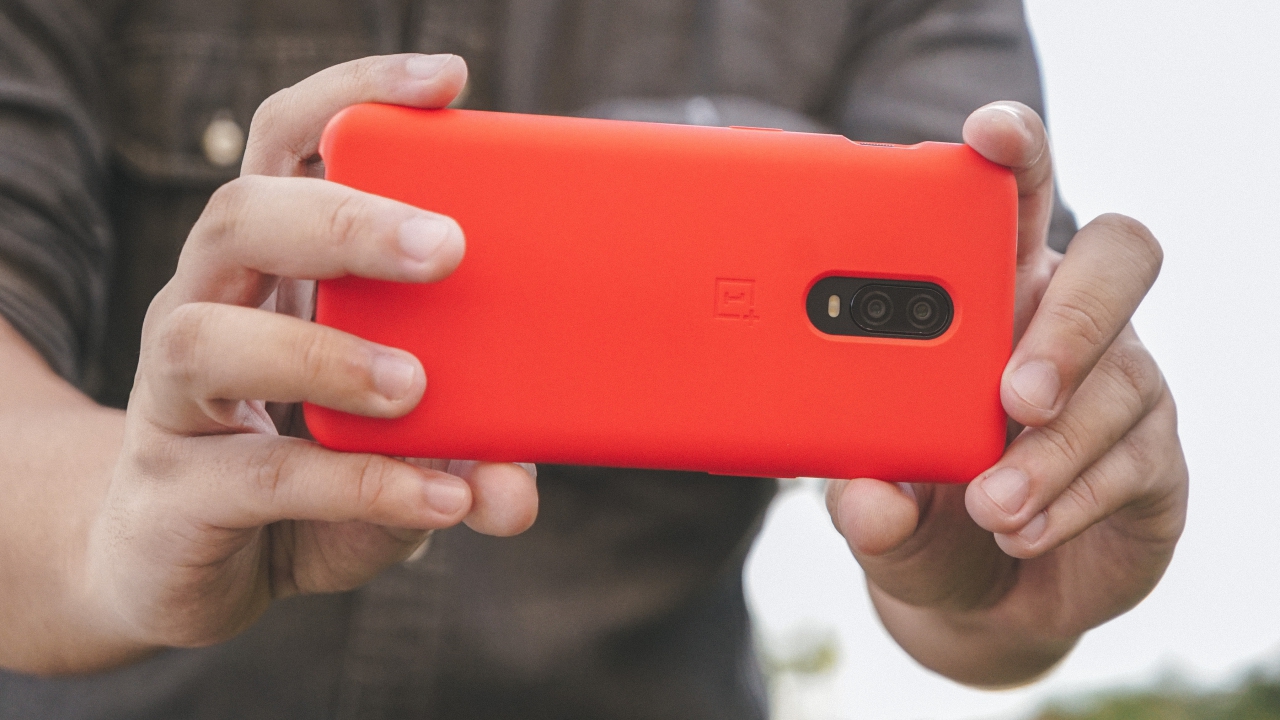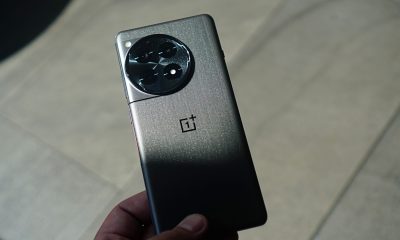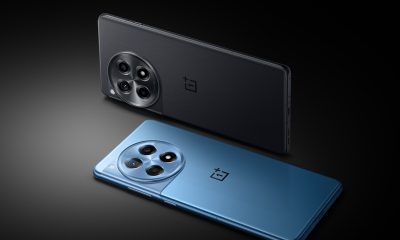Enterprise
Foldable phones are not the future, OnePlus CEO says
No plans for a foldable OnePlus anytime soon

Foldable smartphones have dominated the year. Since the start of 2019, smartphone makers have declared their intentions of joining the foldable craze. Samsung, OPPO, Huawei, and Energizer have each announced (or hinted at) their own entries coming later in the year. Undoubtedly, everyone wants to cash in on the market’s latest innovation. Except OnePlus, that is.
In an interview translated from Italian, OnePlus CEO Pete Lau confirmed his company’s absence from the foldable craze. While the company has contemplated on a foldable phone before, OnePlus ultimately decided against the idea. Lau believes that the foldable market does not represent the future of smartphones. He cites the device’s high production cost and lack of truly innovative features.
Of course, the high production cost has always been a factor. Currently, the foldable smartphone is the market’s most expensive device. On the other hand, the lack of innovation has only been a sneaking suspicion. Current marketing strategies have hyped the form factor as the next best thing.
However, Lau raises a good point: It adds a lot of uncertainties, particularly the increased weight. Ultimately, a foldable smartphone does not offer anything completely different from regular phone.
At the very least, Lau still recognizes the potential of the foldable screen. Tech companies can still incorporate the new technology into other devices.
Currently, OnePlus is prioritizing the development of a TV that can seamlessly communicate with smartphones. Ultimately, the company is developing ecosystems built around its devices.
As for the smartphone industry, OnePlus is gearing up for a monumental year again. Leaks have already revealed the OnePlus 7 and the OnePlus 7 Pro. The company is lining up a slew of smartphones in the future. Just don’t expect a foldable OnePlus device anytime soon.
SEE ALSO: OnePlus will reveal a 5G-enabled device at MWC 2019

For the longest time, Google kept Pixel and Android behind two different teams. While the Pixel team dealt with devices made by and for the brand, the Android team ships a product meant for brands outside of the company’s purview. However, the days of separation are at an end. Google is officially merging its Pixel and Android teams together.
In a shocking announcement, the company has confirmed that the teams handling hardware and software will fall under a single team headed by Rick Osterloh. Prior to the merge, Osterloh was the senior vice president of devices and service, which was Google’s hardware branch. He will now oversee both hardware and software.
Because of the new leadership change, Hiroshi Lockheimer, former head of Android, will now move on to other projects within Alphabet. Of note, the change is not harsh for Lockheimer. He and Osterloh had been contemplating on the merge for a while.
Now, why the change? As is the case with everything today, it’s all because of AI. Speaking to The Verge, Osterloh explains that the merge will help with “full-stack innovation.” With how technology is these days, it’s now impossible to develop AI without having a close eye on hardware, such as in Google’s AI developments for the Pixel camera. Merging the teams will help streamline development, especially when hardware is involved.
Despite the change, outside brands, like Qualcomm’s Cristiano Amon, remains confident of Android’s capabilities outside of Google. Just expect more AI coming out in the near future.

The ongoing trade war between the United States and China is putting a lot of companies out of business in one country. While all eyes are currently on America’s crusade against TikTok, China has launched a salvo of its own. The country has started banning AMD and Intel, starting with government devices.
Recently, as reported by the Financial Times, China has introduced a new rule that bans American chipsets and servers from government agencies. The new ban includes AMD, Intel, and Microsoft Windows.
In lieu of the now-banned brands, Chinese government agencies must use approved brands from a list of 18 Chinese manufacturers. Unsurprisingly, the list includes Huawei, another brand involved in the ongoing trade war. (Huawei is still banned on American soil.)
As with bans from America, China’s latest rules stem from a desire to implement national security. Both countries allege that using brands from the opposing side will open a potential avenue for transferring classified information.
Currently, the ban against the American chipsets are only affecting government devices. However, if it follows the same trajectory as Huawei and TikTok in the United States, a government-only ban might soon lead to an all-out ban on consumer devices. As TikTok is currently hanging in the balance, it’s unlikely that the trade wars will cool down anytime soon.

So far, Apple’s greatest enemy has been the European Union. Months and months of claiming that the company engages in anti-competitive practices, the region has successfully caused Apple to drastically change a lot of things about the iPhone including the Lightning cable. Now, a new challenger wants Apple to answer for its supposed grip on the industry: the United States government.
Today, the Department of Justice is officially suing Apple for supposedly monopolizing the smartphone industry and stifling competition. The lawsuit alleges that Apple’s lineup of products prevent users from trying out other brands. For example, Apple limits how well a third-party smartwatch works on an iPhone, pushing users to go for an Apple Watch instead.
The lawsuit also includes an important pain point in Apple’s fight in Europe. It says that the company makes it difficult for iPhone users to communicate with Android users (and vice versa). Late last year, the company already committed to supporting RCS as a messaging standard, finally easing communication between the two systems. Their adoption has yet to arrive, though.
Though not as stringent as Europe, the American government is no slouch when it comes to questioning its own companies for pursuing anti-competitive practices. In the past, it went through Google and Spotify to protect the interests of its citizens. The lawsuit against Apple is no different, gathering signatures from sixteen states.
For Apple’s part, the company aims to get the case dismissed, alleging the lawsuit’s unfair scope of just the American people when it targets the entire world.
SEE ALSO: Apple opens first Developer Center in Southeast Asia
-

 Events2 weeks ago
Events2 weeks agoStellar Blade: PlayStation taps cosplayers to play Eve for game’s launch
-

 Features1 week ago
Features1 week agoFortify your home office or business setup with these devices
-

 Gaming2 weeks ago
Gaming2 weeks agoThe Rogue Prince of Persia looks like an ultra-colorful roguelite
-

 Accessories2 weeks ago
Accessories2 weeks agoLogitech unveils G Pro X 60 gaming keyboard: Price, details
-

 Reviews1 week ago
Reviews1 week agorealme 12+ 5G review: One month later
-

 Gaming2 weeks ago
Gaming2 weeks agoLenovo confirms development of a Legion Go 2
-

 Deals2 weeks ago
Deals2 weeks agoTCL P635 TV: Big savings for TCL’s anniversary
-

 Gaming1 week ago
Gaming1 week agoNew PUMA collection lets you wear PlayStation’s iconic symbols


























